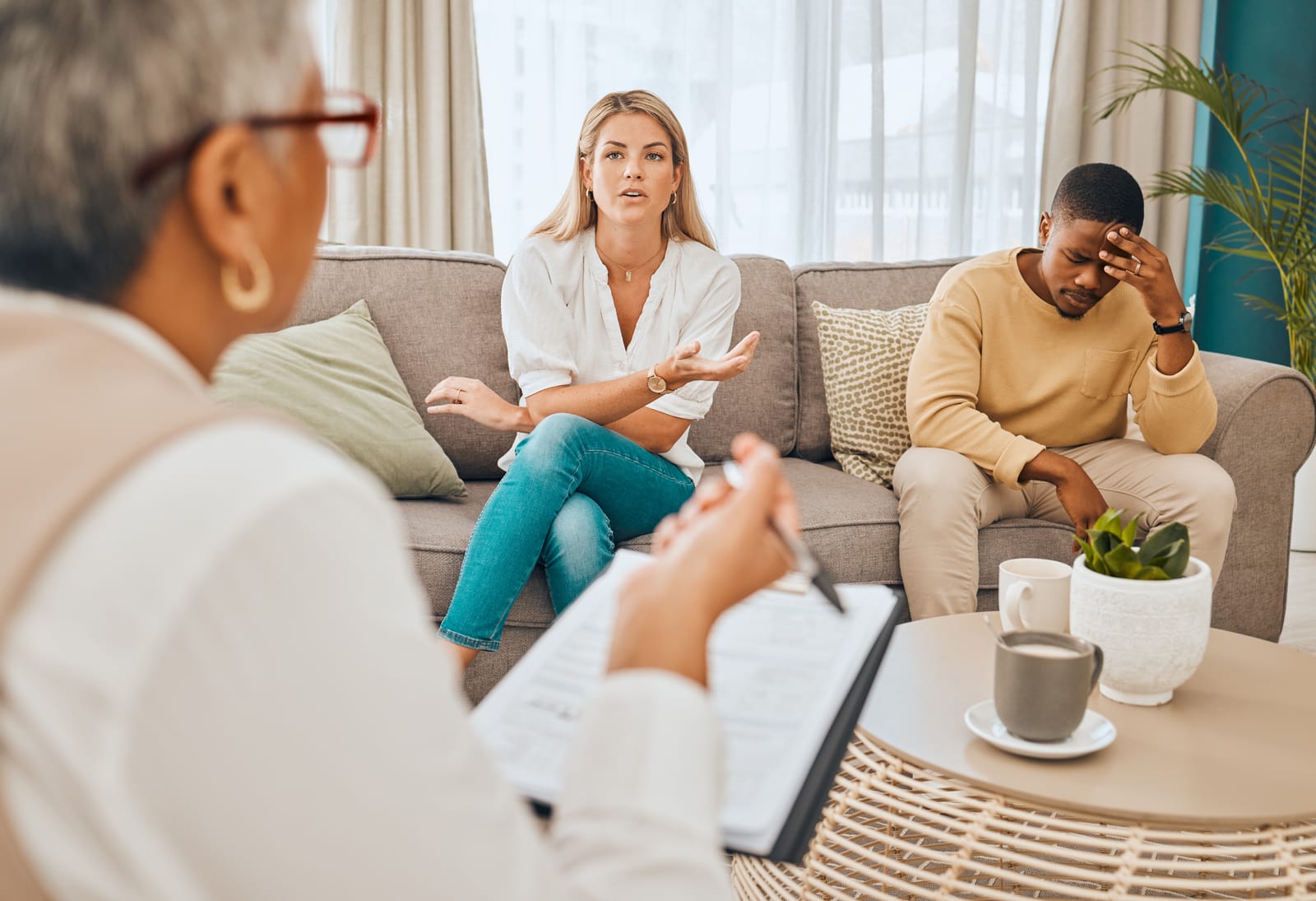Marriage and divorce counseling offers essential support for couples facing emotional and practical challenges in their relationships. Whether you’re seeking to improve communication, resolve conflicts, or navigate the difficult decision of divorce, counseling can provide valuable tools. In this article, we explore the key benefits of marriage and divorce counseling for couples.
Introduction
Marriage and divorce are two of the most significant events in a person’s life, and they come with their own set of challenges. For some couples, marriage may be filled with love, trust, and mutual respect, while for others, it may become a source of stress, frustration, or even emotional distress. Divorce, on the other hand, is often the result of long-standing issues or conflicts that couples are unable to resolve on their own. Whether you’re considering divorce or trying to salvage your marriage, seeking counseling can help navigate these emotional and practical hurdles.
Marriage and divorce counseling are invaluable resources designed to support couples through both difficult and transitional times. Marriage counseling focuses on improving communication, resolving conflicts, and strengthening emotional connections, while divorce counseling helps individuals and couples cope with the emotional complexities of separation, providing clarity and support. Both types of counseling are aimed at helping individuals and couples make informed decisions, heal emotionally, and move forward with greater clarity and understanding.
In this article, we will explore the key benefits of both marriage and divorce counseling, highlighting how they can offer emotional and practical support to couples facing various relationship challenges.
Key Benefits of Marriage and Divorce Counseling
Strengthening Communication and Understanding
Communication is often the cornerstone of any successful relationship. However, many couples struggle with effectively communicating their thoughts, feelings, and needs. In many cases, this lack of communication can lead to misunderstandings, resentment, and emotional distance. Whether you’re facing conflicts or simply looking to improve your relationship, marriage counseling can provide the support needed to enhance communication.
The role of counseling in improving communication between partners.
Marriage counseling helps couples recognize and address poor communication patterns. A therapist works with both partners to identify the root causes of communication breakdowns, whether they stem from defensive behavior, avoidance, or misunderstanding each other’s needs. By providing couples with tools and strategies for clearer communication, counseling helps individuals express their feelings and listen more effectively.
Techniques used in counseling to enhance understanding and emotional expression.
Therapists use various techniques in marriage counseling to improve communication, such as active listening, “I” statements, and reflection. These techniques encourage partners to be present and engaged, fostering a deeper emotional connection. In addition to verbal communication, counseling helps individuals understand non-verbal cues, ensuring that both partners are fully attuned to each other’s emotional needs.
How open communication prevents misunderstandings and builds empathy.
When communication is open and respectful, misunderstandings are less likely to occur. Couples are better able to express their emotions and needs, and their partner is more likely to understand and respond with empathy. Over time, this creates a stronger emotional bond, reducing frustration and increasing mutual respect in the relationship.
Conflict Resolution and Problem-Solving
Disagreements are inevitable in any relationship, but how couples handle conflict can determine the future of their marriage. Constant arguing, emotional withdrawal, or resentment can erode the relationship, making it harder to resolve issues in a healthy way. Marriage counseling offers couples effective strategies for conflict resolution and problem-solving.
How marriage counseling helps couples navigate and resolve conflicts.
Marriage counseling provides a safe space for couples to discuss their issues with the guidance of a trained professional. Counselors help couples identify the underlying causes of their conflicts, whether they are related to miscommunication, unmet expectations, or deeper emotional issues. By focusing on these root causes, counseling ensures that conflicts are resolved constructively, rather than simply being swept under the rug.
Effective strategies used in counseling to address recurring issues.
Therapists often teach couples specific conflict resolution strategies, such as setting ground rules for discussions, taking breaks during heated arguments, and finding common ground. These strategies empower couples to address recurring issues calmly and respectfully, preventing them from escalating into larger problems. Learning these skills helps couples resolve disagreements quickly, while also preserving the emotional health of the relationship.
The importance of developing healthy conflict resolution habits.
Healthy conflict resolution is crucial for the longevity of any relationship. Counseling encourages couples to work through their differences in a way that strengthens their connection rather than weakening it. By developing these habits, couples can address future conflicts more effectively, leading to a more harmonious relationship overall.
Providing Clarity in Divorce Decisions
In some cases, despite the best efforts to resolve issues, divorce becomes the most practical option for both individuals. While the decision to divorce can be painful and emotionally charged, divorce counseling provides clarity for couples considering separation.
How divorce counseling offers clarity when couples are considering separation.
Divorce counseling helps couples gain perspective on their relationship and the potential benefits of separation. A counselor helps both partners assess whether divorce is the right decision or if reconciliation is still possible. This clarity helps individuals make informed decisions about their future, taking the emotional cloudiness out of the decision-making process.
The role of counseling in helping couples make informed decisions about divorce.
Divorce is a major life change, and counseling provides couples with the tools they need to navigate this transition. It helps individuals explore their feelings about the separation, gain closure, and address any unresolved issues. Counselors also help individuals weigh the emotional, financial, and logistical aspects of divorce, ensuring that they make the best decisions for themselves and any children involved.
Counseling’s ability to address emotional challenges during the divorce process.
The emotional challenges of divorce can be overwhelming, with feelings of grief, anger, and confusion often taking center stage. Divorce counseling helps individuals process these emotions in a healthy way, allowing them to heal and move forward. Counselors offer support in managing these feelings, providing a safe space to express concerns and fears during this difficult time.
Healing and Moving Forward After Divorce
For those who have gone through a divorce, the journey to healing and recovery can be long and challenging. Divorce counseling provides crucial support in helping individuals process their emotions and adjust to life post-divorce.
The benefits of counseling for individuals going through a divorce.
Divorce counseling helps individuals cope with the emotional aftermath of separation. By addressing feelings of anger, sadness, and loneliness, counseling provides a way to heal emotionally and regain a sense of self. Individuals can also work through issues like guilt or self-blame, rebuilding their self-esteem and preparing for a healthier future.
How divorce counseling supports emotional recovery and healing.
Counseling provides individuals with a structured space to process their emotions, learn healthy coping mechanisms, and gain clarity about their next steps. This emotional recovery is crucial for rebuilding a fulfilling life after divorce. Counselors help individuals set personal goals and rebuild their emotional strength, empowering them to embrace new beginnings.
Helping individuals and ex-couples rebuild trust and adjust to post-divorce life.
Divorce counseling also helps ex-couples maintain a cooperative relationship, especially when children are involved. Counselors guide individuals through the process of co-parenting and rebuilding trust, ensuring that both parties can transition into post-divorce life with a sense of closure and mutual respect.
Summing Up
Marriage and divorce counseling provide essential support for couples navigating both the challenges of marriage and the emotional complexity of divorce. Whether seeking to strengthen communication, resolve conflicts, or gain clarity in the face of divorce, counseling offers valuable tools and guidance to help individuals and couples move forward with confidence.
By seeking professional support, couples can gain a deeper understanding of their relationship, address underlying issues, and work towards healthier, more fulfilling connections. Divorce counseling, on the other hand, helps individuals process their emotions, make informed decisions, and rebuild their lives post-divorce.
If you’re facing challenges in your marriage or contemplating divorce, marriage and divorce counseling can offer the emotional and practical support you need to navigate these difficult times. With the right guidance, couples can strengthen their relationships, make informed decisions, and heal emotionally, paving the way for a brighter future.





